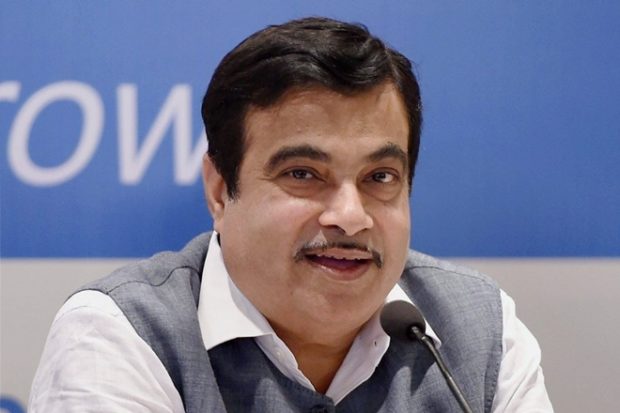
India has over 10 lakh electric vehicles, 1,742 public charging stations: Govt

India has more than 10 lakh registered electric vehicles (EVs) and over 1,500 public charging stations (PCS), according to the government.
The number of EVs in the country, as per Vahan 4 data, as of March 25, is 10,76,420. A total of 1,742 PCS, as per the Bureau of Energy Efficiency (BEE), are operational in the country, as of March 21, Union minister for road transport and highways, Nitin Gadkari told the Parliament on Thursday (March 31).
Also read: Why electric scooters could catch fire, and how you can avoid that
As per government data released in December 2021, there were 870,141 EVs registered in the country with Uttar Pradesh leading among states and Union Territories (UTs). As of December 8, 2021, UP had 255,700 EVs. Delhi was second with 125,347 followed by Karnataka (72,544). This information was given by Gadkari in the Rajya Sabha.
The Ministry of Power had issued “Charging Infrastructure for Electric Vehicles – the revised consolidated Guidelines and Standards” on January 14 to accelerate the E-Mobility transition in the country, the minister said in the Lok Sabha.
‘In 2 years, EVs to cost same as petrol cars’
Gadkari said that in the next two years the cost of electric four-wheelers would be equal to the price of petrol cars.
“I will assure all the honourable members that within two years the cost of electric four-wheelers will be equivalent to the cost of petrol vehicles and the country will change,” he said during Question Hour.
Also read: Centre, police launch probes into Pune, Vellore electric bike fires
“Due to petrol and diesel costs, we are facing crucial problems. Already we have seen the situation. So, this is the only alternative fuel, I mean, green hydrogen, electricity, ethanol, methanol, bio-diesel, bio-LNG and bio-CNG. Sir, we will work in that direction,” he added.
On Wednesday, Gadkari arrived at Parliament in a green hydrogen-powered Toyota Mirai car.
ग्रीन हाइड्रोजन से चलने वाली कार से संसद पहुँचे श्री @nitin_gadkari जी। ग्रीन हाइड्रोजन का उत्पादन होगा, इसके स्टेशन होंगे और देश का आयात भी बचेगा : केंद्रीय मंत्री श्री नितिन गडकरी जी। pic.twitter.com/iqw1Xz2Upx
— Office Of Nitin Gadkari (@OfficeOfNG) March 30, 2022
Under the Scheme for Faster Adoption and manufacturing of electric vehicles in India Phase-II (FAME India Phase II) of the Ministry of heavy industries, 2,877 public EV charging stations have been sanctioned in 68 cities.
Action plans for 8 cities
“Action Plans have been prepared by BEE for eight cities with 4 million-plus population (Mumbai, Delhi, Bangalore, Ahmedabad, Chennai, Kolkata, Surat, and Pune). Under these Action Plans, scenario-wise targets have been prepared for Business as Usual (BAU), Moderate and Aggressive Scenarios for installation of chargers in these cities,” Gadkari said.
Also read: Delhi to get 100 more e-vehicle charging stations by June 27; 71 to be at metro stations
The Ministry of heavy industries (MHI) had invited proposals from any Government Organisation or Public Sector Undertaking (PSU) to build and operate Public EV charging infrastructure on Expressways and National Highways under FAME India Scheme Phase-II for Highways and Expressways.
PSU Energy Efficiency Services Limited (EESL), in consortium with Convergence Energy Services Ltd (a subsidiary of EESL), has been awarded the work for setting up EV charging stations along 16 NH/Expressways.
EV charging stations near toll plazas
In order to facilitate EESL in the above prospect, NHAI has signed a Memorandum of Understanding (MoU) with EESL. As per this MoU, NHAI shall provide space/land near toll plazas and its buildings for installation of EV charging stations, based on revenue sharing model, subject to an agreeable amount to NHAI and EESL, the Ministry of Road Transport and Highways said.
As part of the Wayside Amenities (WSAs), the National Highways Authority of India (NHAI) has also awarded 39 such facilities for development, it added.
The ministry of heavy industries formulated the Faster Adoption and Manufacturing of (Hybrid &) Electric Vehicles in India (FAME India) Scheme in 2015 to promote adoption of electric/ hybrid vehicles (xEVs) in the country with the aim to reduce dependency on fossil fuels.
The Phase-II of FAME India scheme is being implemented for 5 years from 1 April 2019 with total budgetary support of Rs 10,000 crore. GST on EVs has been reduced from 12% to 5%, and GST on chargers/charging stations for EVs has been reduced from 18% to 5%.

